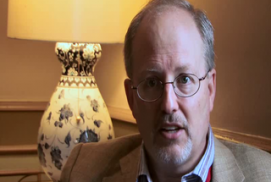10 July 2013
Throughout history, European “corporations” helped develop strong civil societies and democracies while the so-called “waqf”, or Islamic trusts, delayed the rise of autonomous non-governmental associations capable of providing the checks and balances essential to democratic rule and thus, favored the emergence of autocracies. The Islamic tax – the ‘zakat’ – and inheritance laws fragmentized the commercial sector which failed to produce lasting constraints on rulers and bargaining effectively with the State. Does this mean that there are normative aspects of Islam which have hindered democratization and economic growth? At our Istanbul Seminars 2012, we have asked Timur Kuran, Professor of Economics and Political Science, and Gorter Family Professor in Islamic Studies at Duke University. – Filmmaker: Anna FanueleInterview and text editing: Nina zu Fürstenberg


